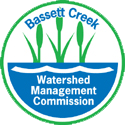News
Leave the leaves in your yard—but not in the street
Tue, Nov 2, 2021If you are a reader of a certain age, you may have wondered, ‘Where have all the lightning bugs gone?’ Just because many of you captured them in a jar and found them dead the next morning, their population decline doesn’t rest [solely] on your shoulders. Rather chances are, the overwintering insects were carried off with the leaf litter year after year.
Water management organizations ask residents to rake leaves out of the streets so they don’t pollute our lakes and creeks – and that’s still an important practice. However, we now realize the importance of keeping leaves in our gardens and other areas around our lots to avoid decimating insect populations.
The new advice is to rake the leaves into your existing gardens, rather than composting them or sending them away with compost haulers. In gardens, leaves insulate the flowers and plants and offer vital shelter and food for many insects, amphibians, birds, reptiles, and small mammals. Many insects curl up in the leaf litter or bore into hollow dead flower stems. When we compost the leaves, we are also composting next year’s insect populations. And these insects are essential pollinators and an important food source for birds and other creatures.
If you like to keep things tidy, try creating a pile of leaves in the back of your land, perhaps beneath some spruce trees, or consider constructing a decorative fence to make it look nice. By keeping leaves and vegetation on-site, you can avoid unintentionally hauling off hibernating insects, and then they have a chance to emerge in the spring.
An unintended consequence of losing insects includes losing many other species farther up the food chain that depend on them. According to the Audubon Society and Scientific American, bird populations have declined 29 percent since 1970 across nearly all habitats. Ken Rosenberg, a senior scientist at the Cornell Lab of Ornithology and the nonprofit American Bird Conservancy, reports that the magnitude of the decline could significantly affect the continent’s food webs and ecosystems. Birds play a vital role in pest control, pollination, and seed dispersal. The presence or absence of birds in a habitat can be a useful indicator of other environmental trends; if there are no birds, other parts of the ecosystem are likely also in decline.
Did you know?
- The heat from leaf blowers can harm insects slumbering in the leaves and just below the ground's surface.
- Dead stumps and logs house a multitude of insects. Consider creating a gnome house from a little stump or put a tabletop on a big stump.
- Native plants (trees, bushes, grasses, and flowers) offer better food sources to native wildlife and don’t need pesticides or fertilizers—two more wins for water.
Written by Dawn Pape on behalf of the Bassett Creek Watershed Management Commission (BCWMC), a local unit of government comprised of the nine cities that drain to Bassett Creek, focused on protecting water. BCWMC is a member of the West Metro Water Alliance. www.bassettcreekwmo.org.

